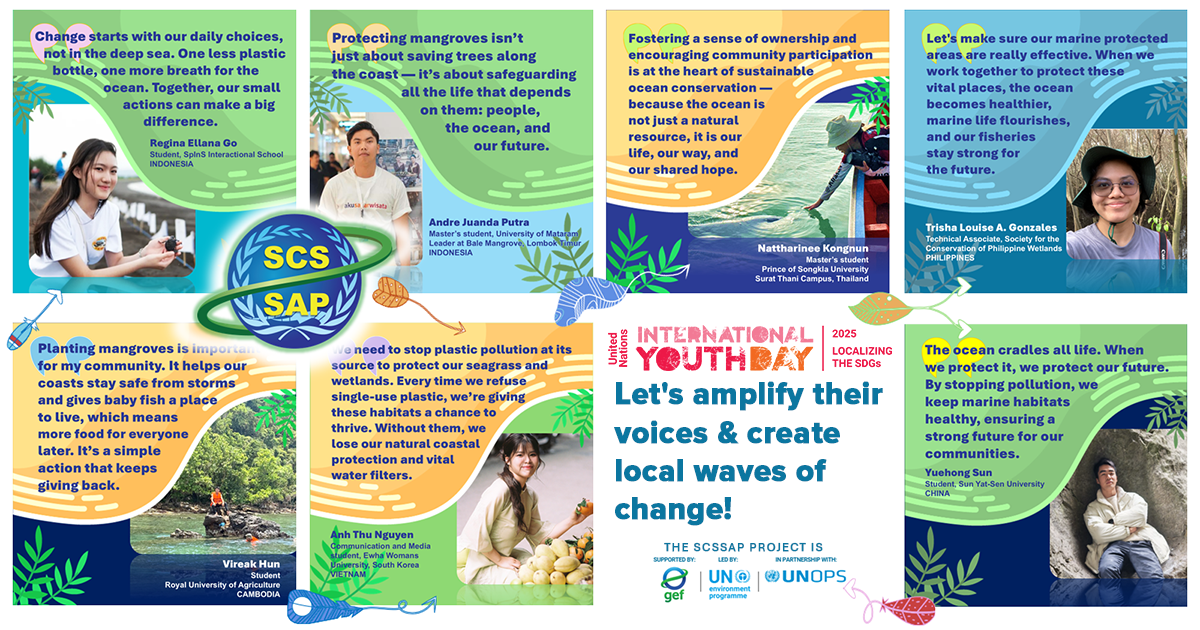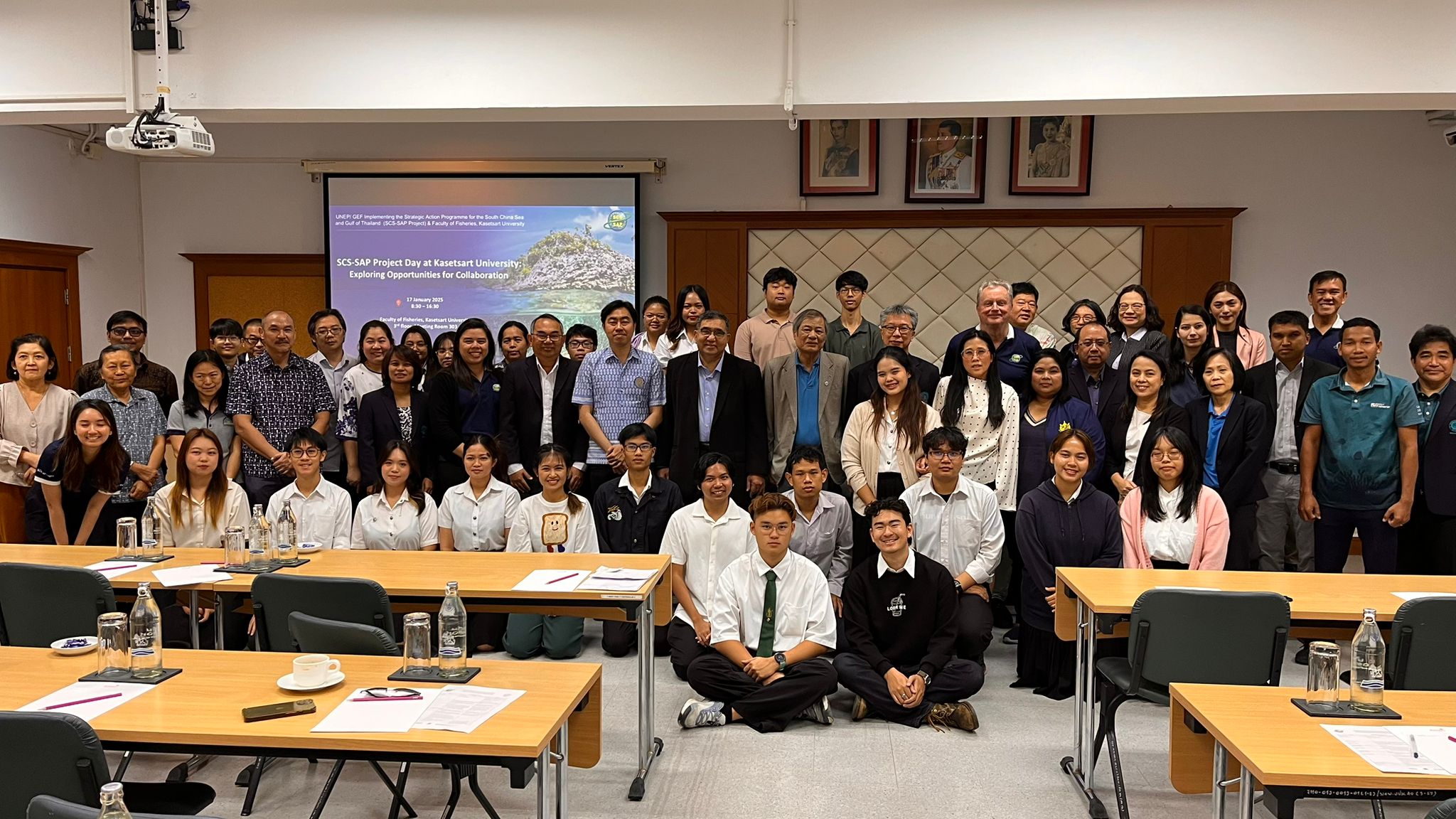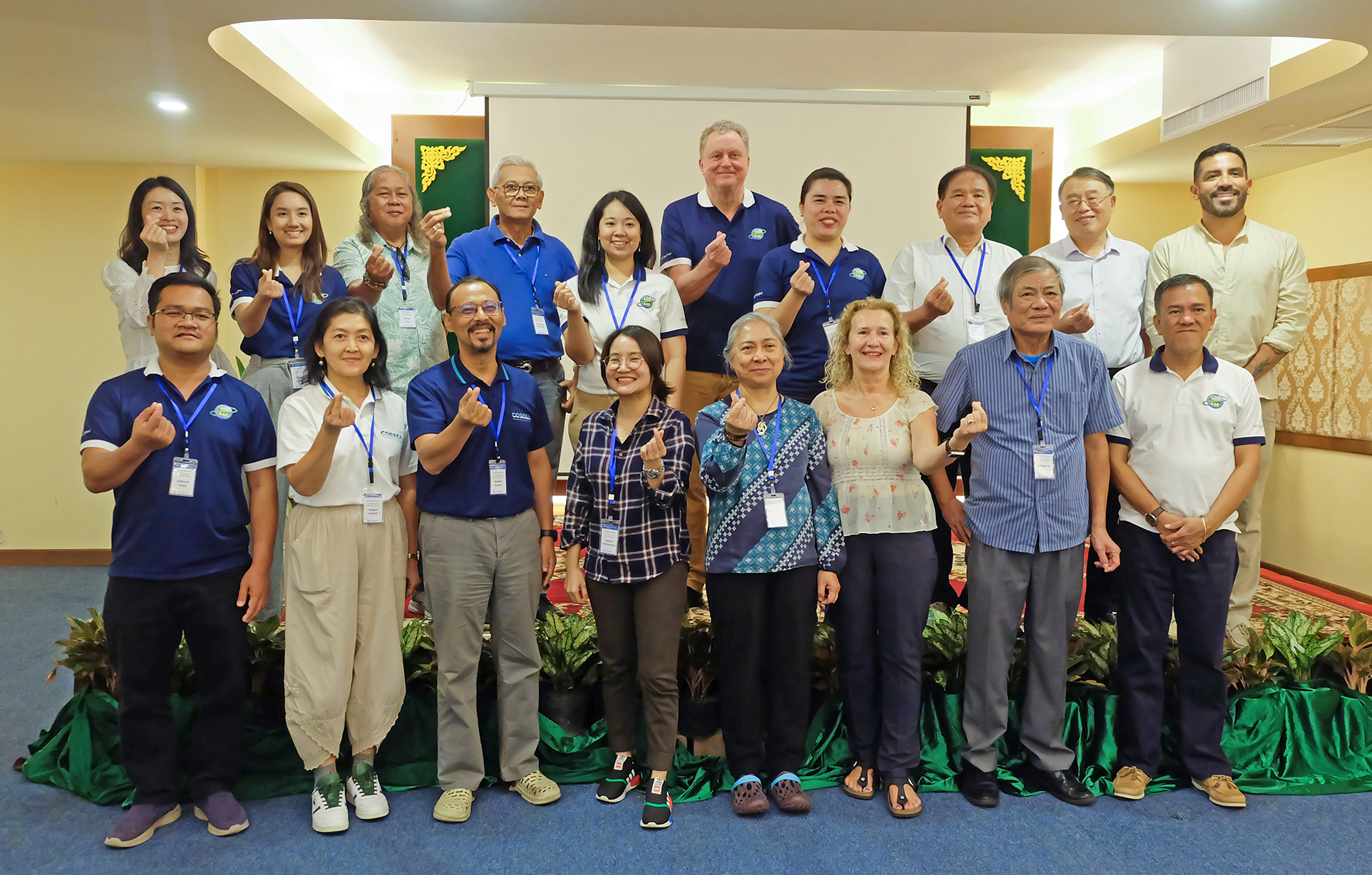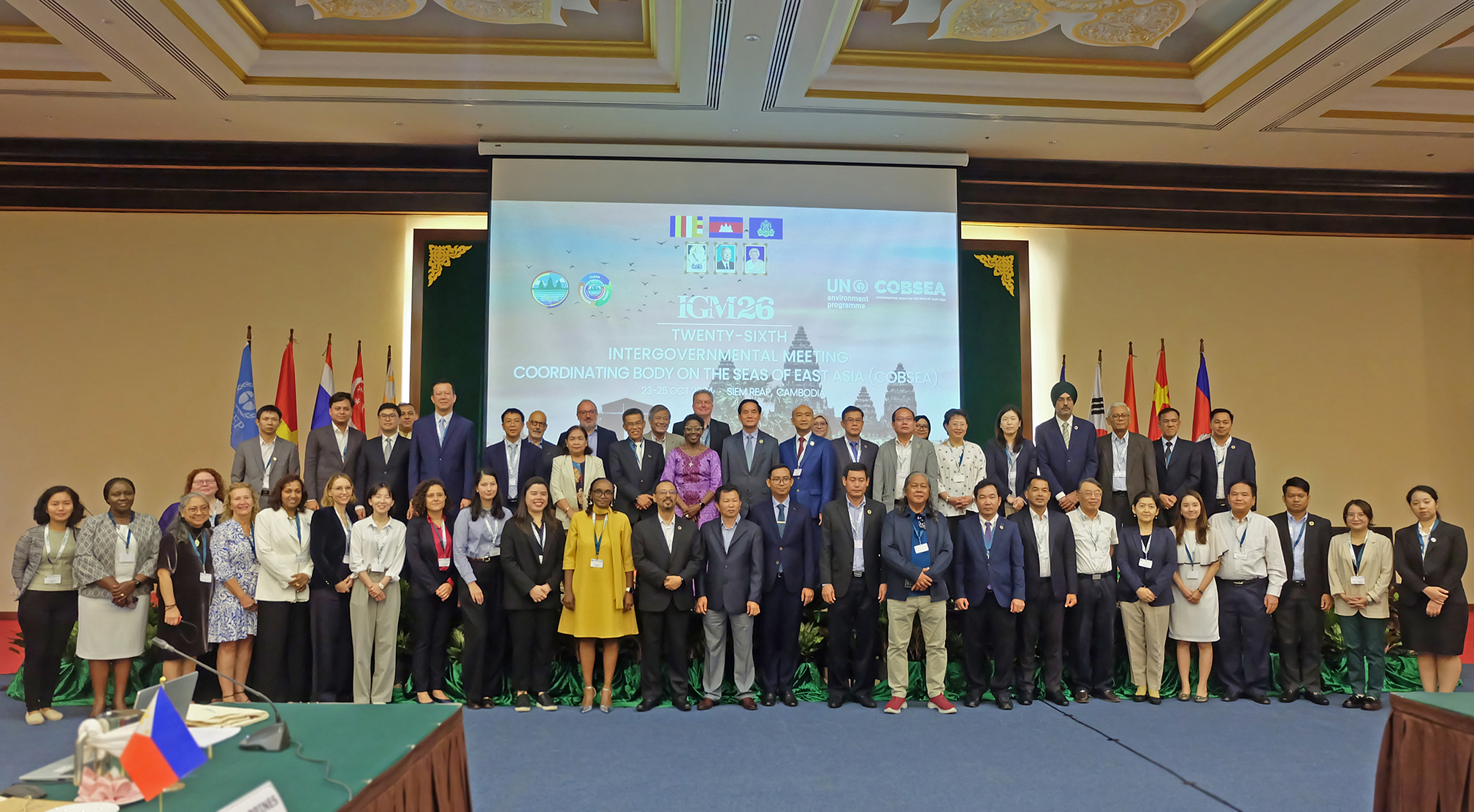SCS SAP and PEMSEA collaborate for coastal health and a sustainable Blue Economy
- Details
The SCS SAP Project is co-organizing a crucial learning exchange and study tour with the Partnerships in Environmental Management for the Seas of East Asia (PEMSEA) from 16-18 September 2025 in Jakarta, Indonesia. This collaborative event, held in conjunction with the annual PEMSEA Network of Local Governments (PNLG) meeting, marks a significant step towards strengthening coastal and marine resource management in the East Asian Seas region.
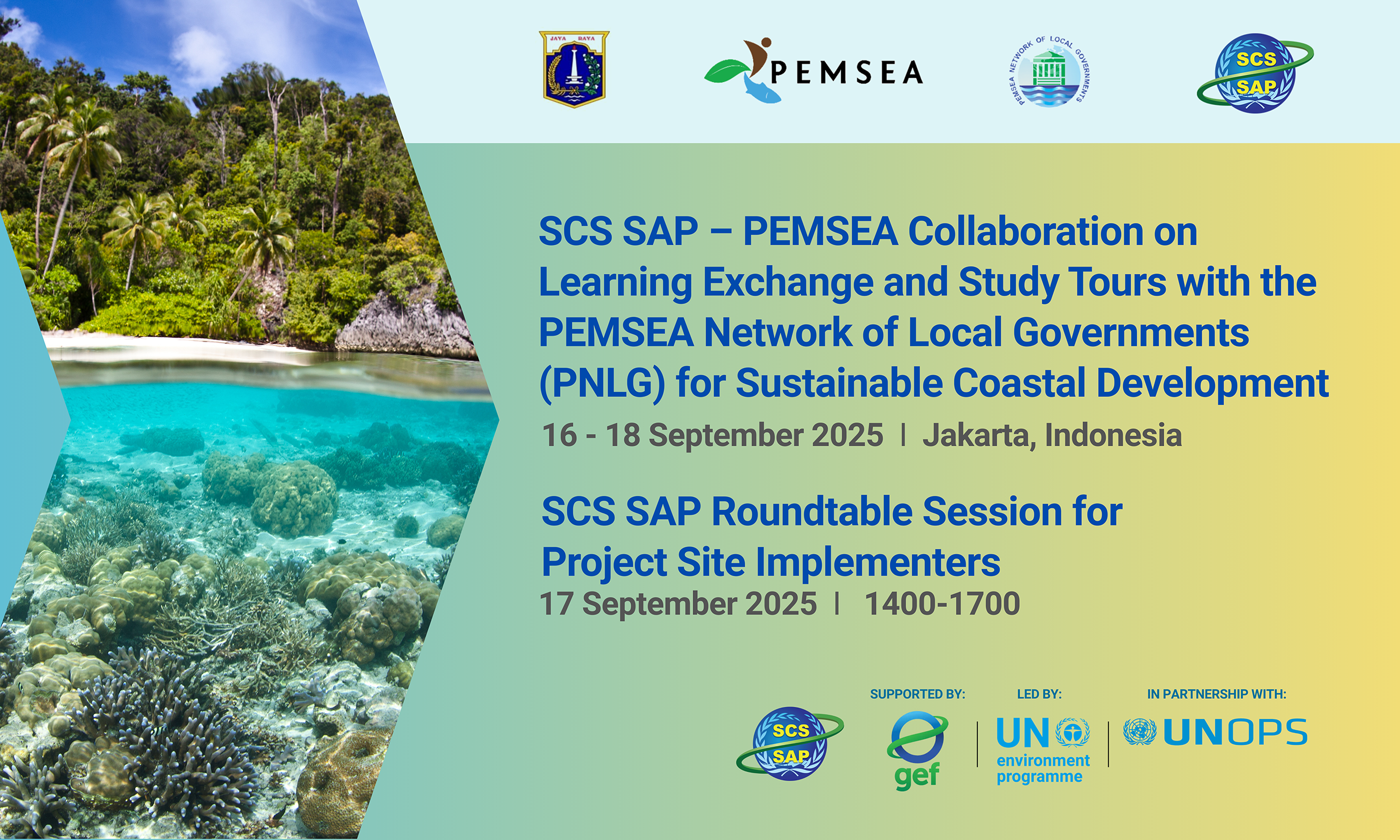
"Local Youth Actions for the SDGs and Beyond" in the Seas of East Asia
- Details
Every year, on 12 August, the world celebrates International Youth Day, acknowledging the power of young people in translating global goals into local actions.
With the theme "Local Youth Actions for the SDGs and Beyond," International Youth Day 2025 highlights the significant role of youth in achieving a sustainable future. Across the South China Sea and Gulf of Thailand Large Marine Ecosystems (LMEs), young people are not only beneficiaries of change but are its driving force, actively participating in efforts to protect our coastal and marine environments. Their creativity, energy and deep community ties are bridging the gap between high-level policy and grassroots action, and the now with the future.
Showcasing SCS SAP seagrass conservation successes at the First Asian Regional Dialogue on Seagrass and Dugong Conservation
- Details
The SCS SAP Project is proud to be a collaborating partner in the First Asian Regional Dialogue on Seagrass and Dugong Conservation, taking place in Bangkok from 20-21 February 2025. The SCS-SAP Project Seagrass Regional Working Group will showcase recent achievements from the Seagrass Ecosystem Service Project and the Strategic Action Programme for the South China Sea and Gulf of Thailand.
Renewed momentum for a healthier Seas of East Asia: The Second Meeting of the Regional Working Groups on coastal and marine ecosystems
- Details
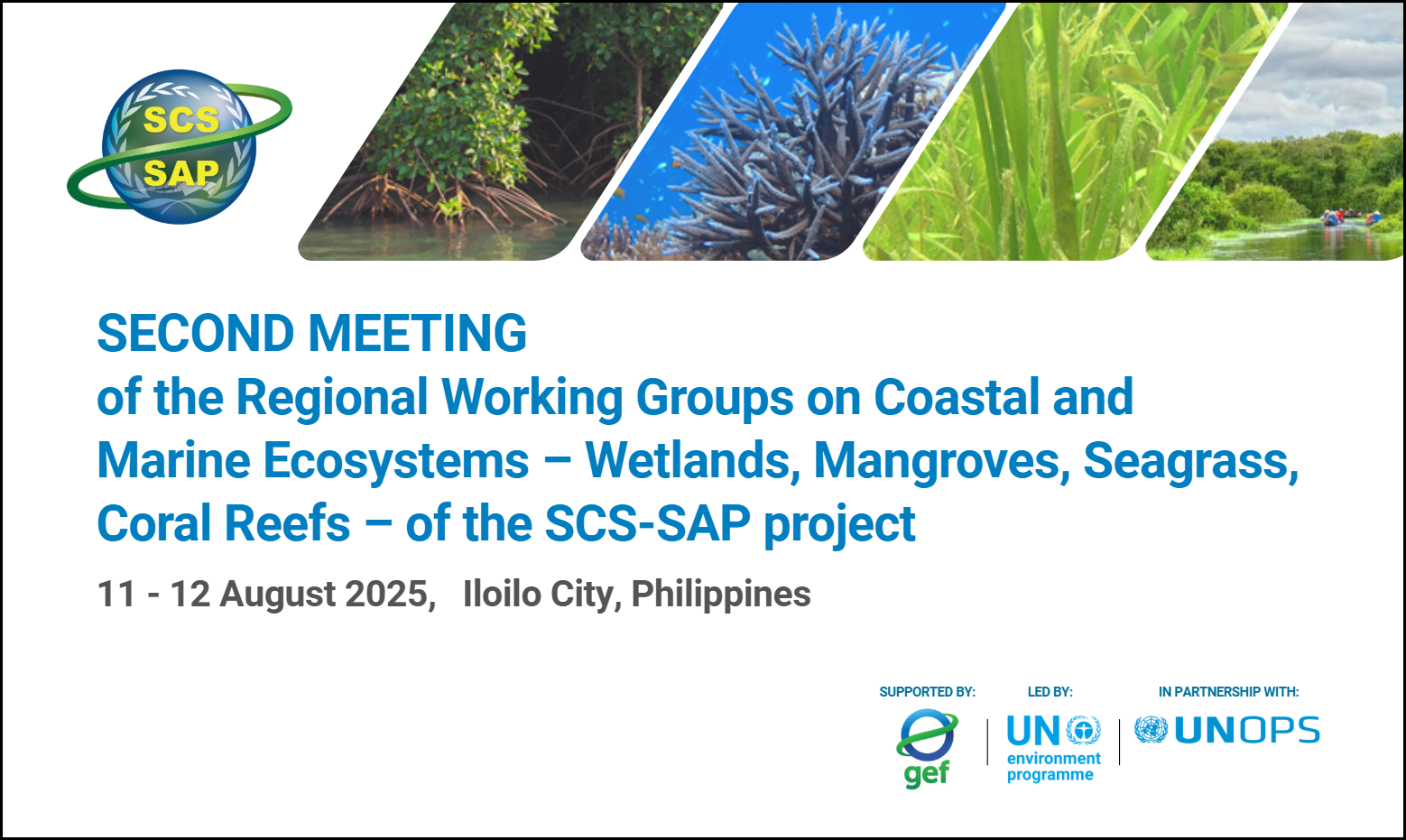 After nearly four years, the SCS SAP Project Regional Working Groups (RWG) on coastal and marine ecosystems, namely Coral Reefs, Mangroves, Seagrass, and Wetlands, is finally moving from virtual meetings to an on-the-ground gathering. Taking place in Iloilo City, Philippines from 11-12 August 2025, this meeting marks a pivotal moment for the project. It is our first in-person gathering for the RWGs since the inaugural virtual meetings in December 2021.
After nearly four years, the SCS SAP Project Regional Working Groups (RWG) on coastal and marine ecosystems, namely Coral Reefs, Mangroves, Seagrass, and Wetlands, is finally moving from virtual meetings to an on-the-ground gathering. Taking place in Iloilo City, Philippines from 11-12 August 2025, this meeting marks a pivotal moment for the project. It is our first in-person gathering for the RWGs since the inaugural virtual meetings in December 2021.
SCS SAP inspires the Next Generation at Kasetsart University
- Details
We hosted a special Project Day at Kasetsart University's Faculty of Fisheries on 17 January 2025, welcoming the next generation of marine scientists and conservationists. The event brought together over 70 participants, including undergraduate and PhD students, faculty members, and professionals from key environmental organizations.
Driving ocean momentum towards World Oceans Day and UNOC3
- Details
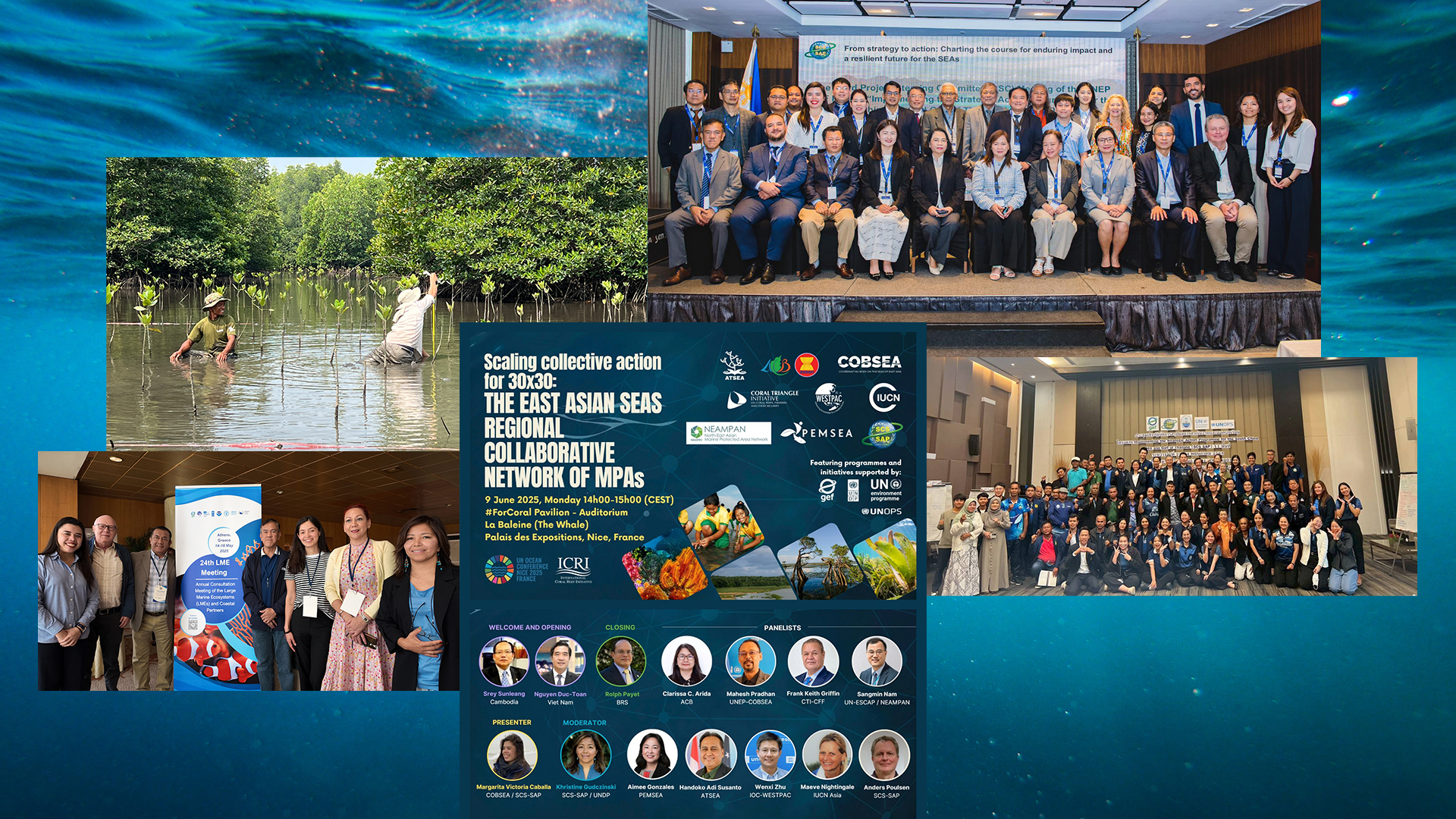 Large Marine Ecosystems (LMEs) are productive ocean areas near continents, crucial for both the environment and coastal economies. Facing threats like pollution, habitat loss, and overexploitation, LMEs require transboundary cooperation. Protecting our global ocean and biodiversity is a top priority for the United Nations, and for UNOPS, especially as the world prepares for the third UN Ocean Conference (UNOC3) in Nice, France, where commitments will be made to #SaveOurOcean. Our regional collaboration under the GEF/UNEP/UNOPS SCS SAP Project directly addresses these challenges in the South China Sea and Gulf of Thailand LMEs through strong regional collaboration and various activities.
Large Marine Ecosystems (LMEs) are productive ocean areas near continents, crucial for both the environment and coastal economies. Facing threats like pollution, habitat loss, and overexploitation, LMEs require transboundary cooperation. Protecting our global ocean and biodiversity is a top priority for the United Nations, and for UNOPS, especially as the world prepares for the third UN Ocean Conference (UNOC3) in Nice, France, where commitments will be made to #SaveOurOcean. Our regional collaboration under the GEF/UNEP/UNOPS SCS SAP Project directly addresses these challenges in the South China Sea and Gulf of Thailand LMEs through strong regional collaboration and various activities.
Stronger together: SCSSAP retreat fosters collaborative action
- Details
Following the 26th Intergovernmental Meeting of COBSEA in Siem Reap, members of the South China Sea Strategic Action Programme (SCS SAP) participated in a two-day strategic retreat aimed at strengthening cross-border collaboration for marine conservation.
The retreat focused on developing practical solutions for regional environmental challenges, particularly important given the program's operation across multiple Southeast Asian nations. Through collaborative exercises, participants explored how to better align individual country priorities with regional conservation goals while building stronger inter-team relationships.
Project Site Visit at Si Chang Island, Chonburi Province, Thailand
- Details
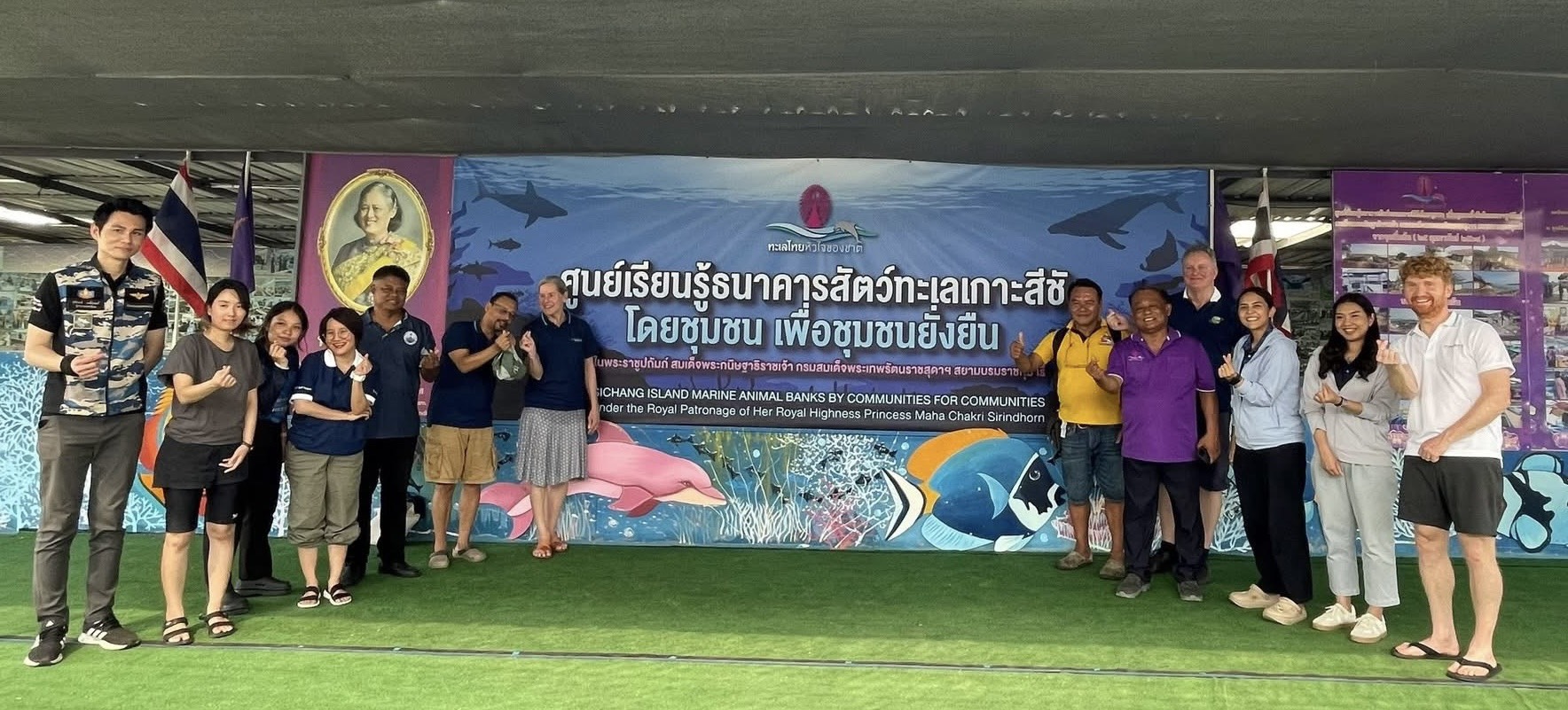
Implementing the Strategic Action Programme for the South China Sea and Gulf of Thailand (SCS SAP) Project, UNEP/ COBSEA and the Department of Marine and Coastal Conducted a Project Site Visit at Si Chang Island, Chonburi Province
On March 16, 2025, the SCS SAP Project, together with UNEP/COBSEA and the Department of Marine and Coastal Resources (DMCR), assigned the Marine Resources Conservation Division through the Marine Protected Area Management Section and the Office of Marine and Coastal Resources Region 2 to welcome Ms Susan Gardner, Director of the Ecosystems Division, and representatives from UNEP. The purpose of the visit was to study the implementation areas of the Strategic Action Programme for the South China Sea and Gulf of Thailand (SCS SAP) Project at Si Chang Island, Chonburi Province.
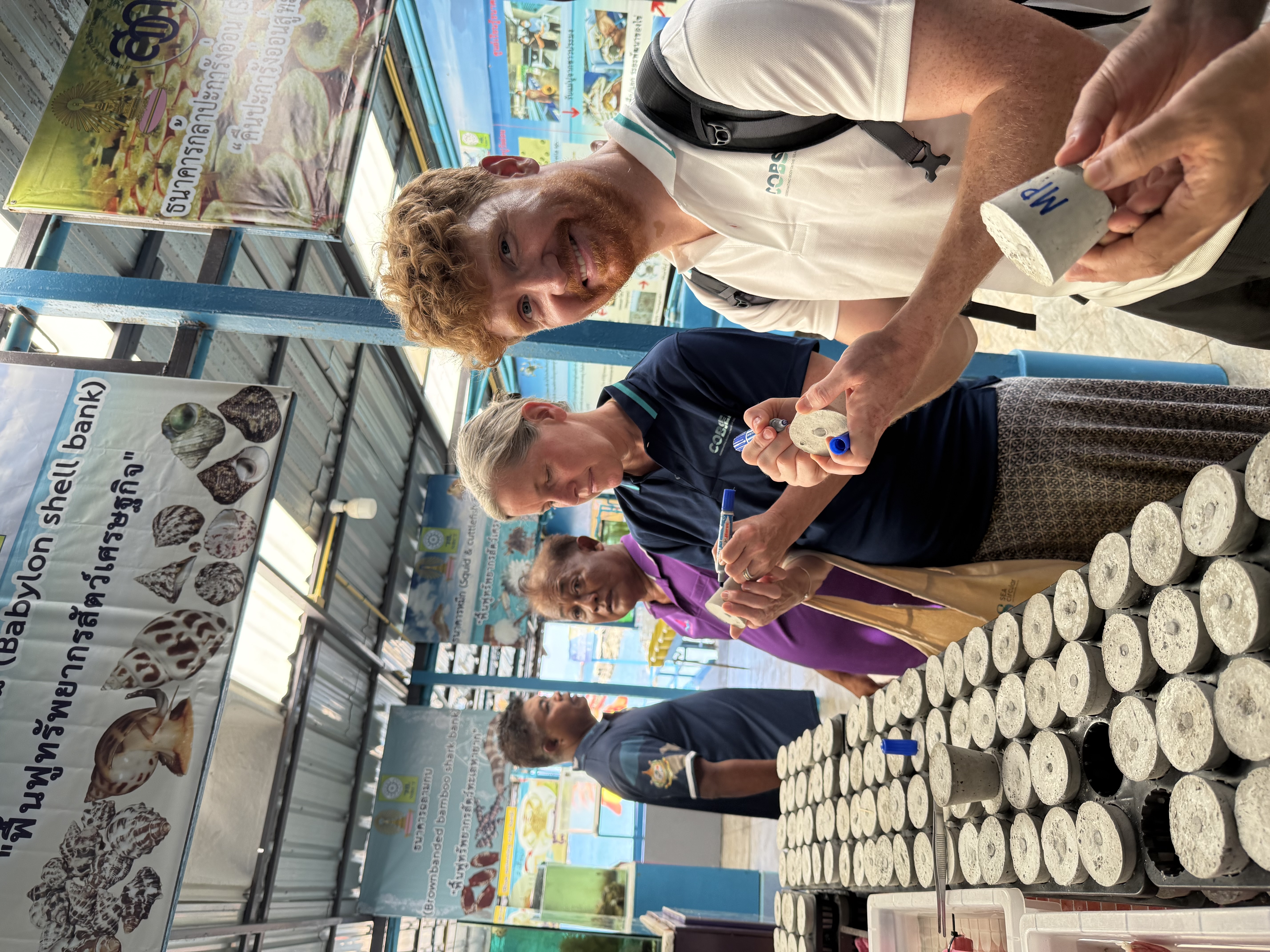
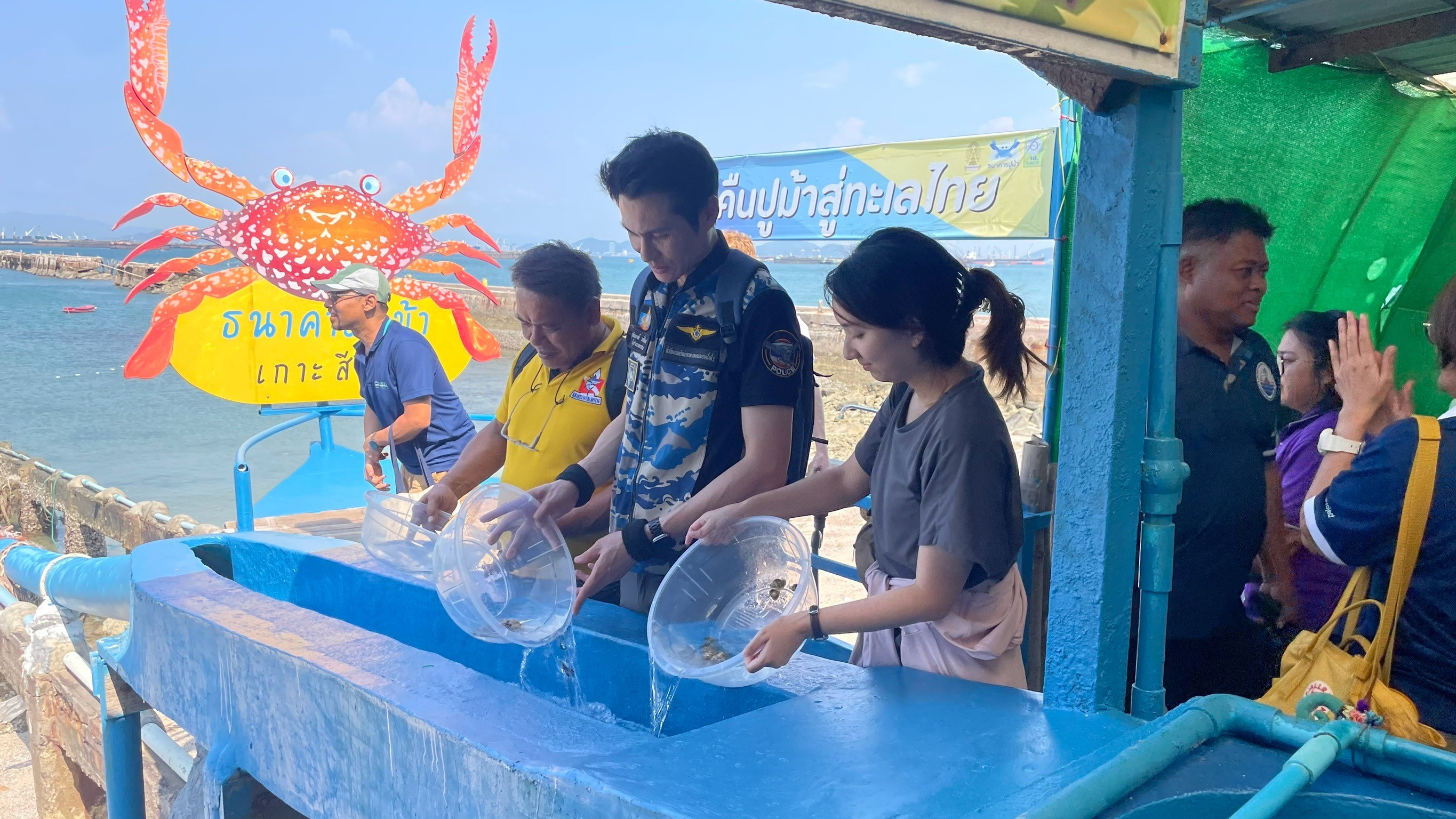
The DMCR is the key agency responsible for implementing the project in this area. On this occasion, Ms.Chanokphon Jantharakhantee, Director of the Sub-Division of Marine and Coastal Protected Areas Management, delivered a presentation on the progress of zoning for the utilization of marine and coastal resources. The zoning is based on the Marine Spatial Planning (MSP) framework at Si Chang Island. Additionally, the delegation visited the Si Chang Island Community-Based Marine Animal Bank Learning Center Under the Royal Patronage of H.R.H. Princess Maha Chakri Sirindhorn, which focuses on sustainable community-based marine resource management. Assistant Professor Dr. Ninnaj Chai-thanawisut, Chairperson of the Center, and an expert in marine conservation, provided insights into the community’s efforts.
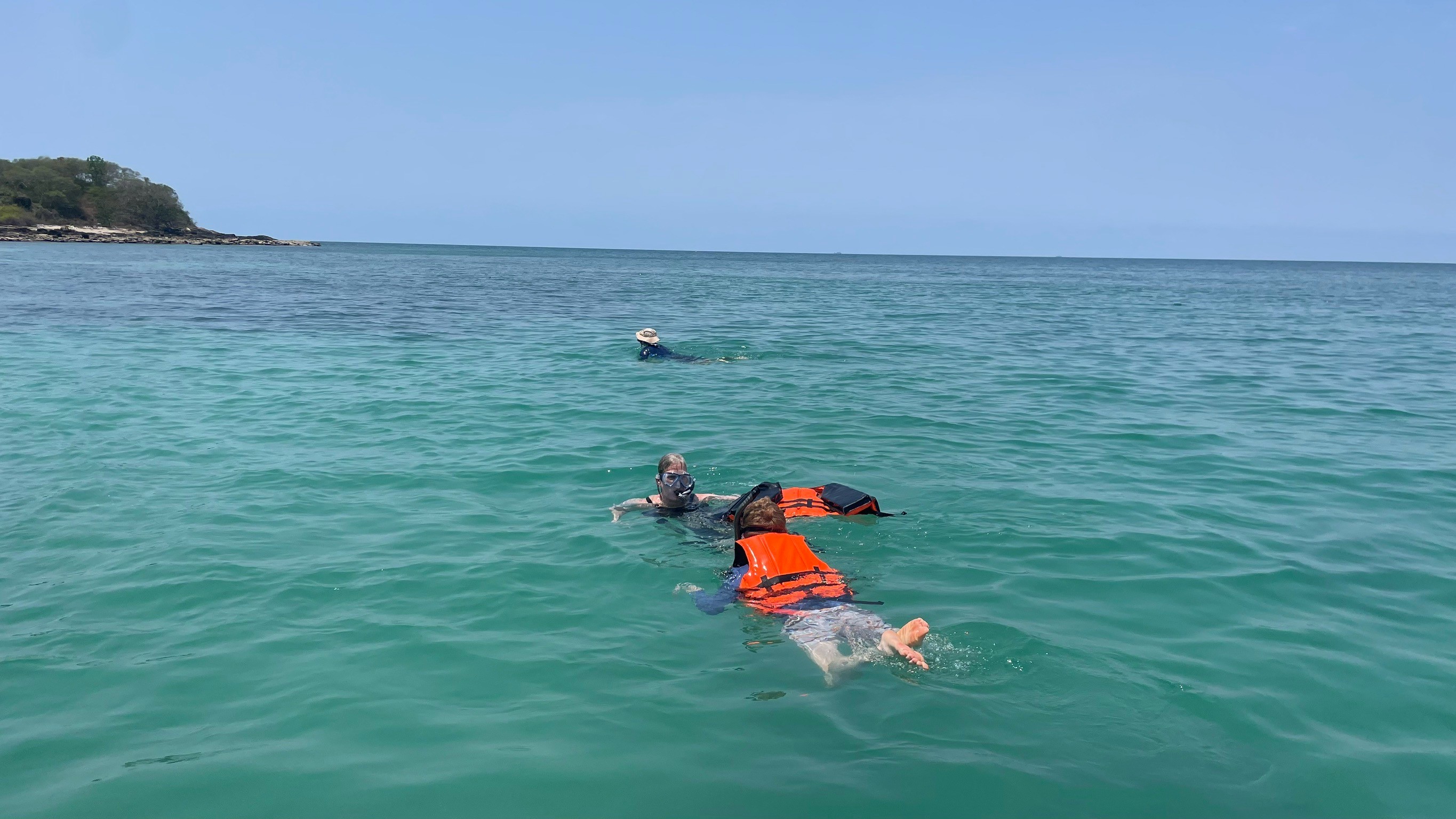
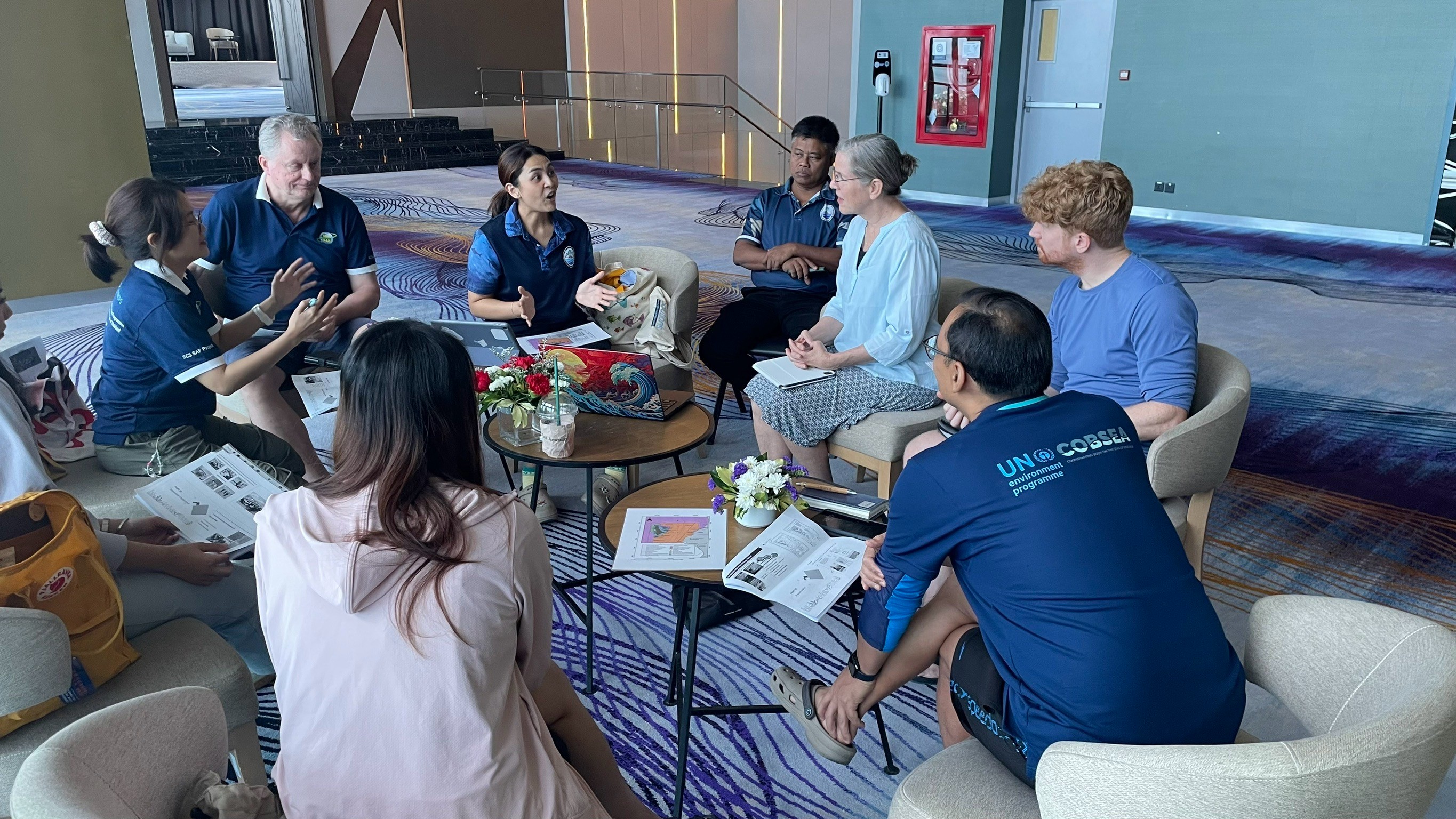
United for marine protection at COBSEA's East Asian Seas Meeting
- Details
The 26th Intergovernmental Meeting of the Coordinating Body on the Seas of East Asia (COBSEA) convened in Siem Reap, Cambodia on 23-25 October 2024. The meeting brought together delegates from all nine COBSEA participating countries: Cambodia, China, Indonesia, Republic of Korea, Malaysia, Philippines, Singapore, Thailand, and Vietnam.
